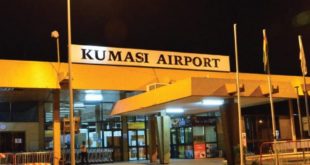
The government has justified its decision to back financial support arrangements that would raise the minimum capital requirement levels of seven local banks.
Last year, the Bank of Ghana raised the minimum capital requirement of commercial banks from GH¢120 million to GH¢400 million and set a December 31, 2018 deadline.
According to the central bank, some 22 banks have so far met the new minimum capital requirement, but some local banks have been struggling to meet it.
The justification by government comes in the wake of accusations of double standards and bias by some industry watchers who suggest that the banks to be supported have been given preferential treatment.
According to a government source, it was forced to support the planned bailout arrangement – which is private-sector led – because should the banks fold up, it will have a devastating effect on the economy.
The struggling local banks, according to the government, are making a significant contribution to the economy in terms of payment of taxes and providing employment.
For instance, the source noted that “we were worried about the direct and indirect job losses coming just after the collapse of the seven commercial banks.”
The government, according to the source, is concerned that the economy may not be ready to absorb another round of indirect jobs that will be occasioned if the seven struggling banks go down.
The government also considered the fact that if these banks are made to operate as savings and loans companies because of their inability to meet the new capital requirement, it will restrict a lot of business activities which would in turn impact negatively on their earnings and jobs.
Concerns of bias, double standards
The government has also rejected claims of bias and double standards over how it handled the situation.
The news about the planned financial support for these local banks has resulted in some raising serious concerns about why the government allowed some other seven banks to go down.
But the government has maintained that, unlike the seven collapsed banks, these local banks were managed and they were not insolvent like the other financial institutions, “so it is not fair to allow them to go down, just because of a little top up to recapitalize.”
Proposed financial deal for the local banks
The proposed deal, Joy Business has learned, is a private sector lead deal, which has resulted in the creation of the “Ghana Amalgamated Trust,” also known as a “Special Purpose Vehicle.” The trust is hoping to leverage some private pension funds being managed and “lend” it to these banks in return for equity or call it a “controlling” stake.
What would the deal mean to affected banks?
Joy Business is also learning that this is not free money or a bail out, but rather, support that would result in having equity in these banks.
We are also learning that this deal would result in a possible takeover of key positions in the banks like Managing Directors and Financial Controllers. There are also plans to float their interest and possibly list on the Ghana Stock Exchange. Joy Business has also revealed that in the future, some of these banks could be merged.
It is still not clear for now the total number of local banks that have finally signed up for the proposed financial arrangement.
Some of these banks are still looking at whether they should take up this government-backed deal or go ahead with their plan to merge with other banks.
Source: Myjoyonline.com
 The Spot Of Latest Trending News And Leaks Log On For Latest Political News, Health Related Issues And More
The Spot Of Latest Trending News And Leaks Log On For Latest Political News, Health Related Issues And More









